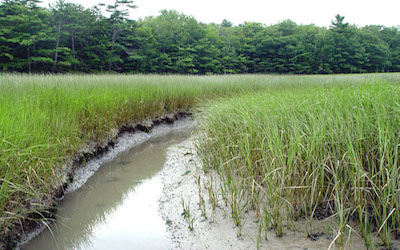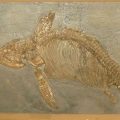随着PTE考生对PTE口语和PTE听力的重视,大家口语和听力的分数得到极大提高,但是PTE阅读渐渐成为考生们新的难题。
墨尔本悉尼文波PTE特别为PTE考生们挑选了适合练习PTE阅读的文章,主题,内容,长度都与PTE阅读题中的文章相似。激活学过的词汇,更新新的词汇,提高阅读速度,全面提升自己的阅读能力。
Spartina alterniflora, known as cordgrass, is a deciduous, perennial flowering plant native to the Atlantic coast and the Gulf Coast of the United States. It is the dominant native species of the lower salt marshes along these coasts, where it grows in the intertidal zone (the area covered by water some parts of the day and exposed others).
These natural salt marshes are among the most productive habitats in the marine environment. Nutrient-rich water is brought to the wetlands during each high tide, making a high rate of food production possible. As the seaweed and marsh grass leaves die, bacteria break down the plant material, and insects, small shrimp like organisms, fiddler crabs, and marsh-snails eat the decaying plant tissue, it, and excrete wastes high in nutrients. Numerous insects occupy the marsh, feeding on living or dead cordgrass tissue, and redwing blackbirds, sparrows, rodents, rabbits, and deer feed directly on the cordgrass. Each tidal cycle carries plant material into the offshore water to be used by the sub-tidal organisms.
Spartina is an exceedingly competitive plant. It spreads primarily by underground stems; colonies form when pieces of the root system or whole plants float into an area and take root or when seeds float into a suitable area and germinate. Spartina establishes itself on substrates ranging from sand and silt to gravel and cobble and is tolerant of salinities ranging from that of near freshwater (0.05 percent) to that of salt water (3.5 percent). Because they lack oxygen, marsh sediments are high in sulphides that are toxic to most plants. Spartina has the ability to take up sulphides and convert them to sulphate, a form of sulphur that the plant can use; this ability makes it easier for the grass to colonize marsh environments. Another adaptive-advantage is Spartina’s ability to use carbon dioxide more efficiently than most other plants.
perennial /pə’renɪəl/ 持久的,多年生的
intertidal /ɪntə’taɪd(ə)l/ 高潮线与低潮线之间的
excrete /ɪk’skriːt/ vt. 排除,排泄;分泌,排出 adj. 排泄的,分泌的;促进排泄的
rodent /’rəʊd(ə)nt/ n. <动>啮齿目动物
germinate /‘dʒɜːmɪneɪt/ vt. & vi. (使)发芽
salinity /sə’lɪnəti/ n. 盐分,盐度
sulphide /’sʌlfaɪd/ n. 硫化物
sulphate /ˈsʌlfeit/ n. 硫酸盐





